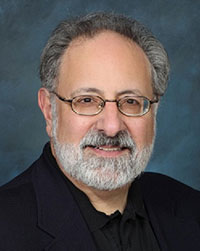Psychotherapist Dennis Palumbo gives an update on how writers are adapting after 10 months of staying safer-at-home.

Here’s a question I’ve been asked recently:
“Now that we’ve lived through more of the pandemic, do you see a shift in how your therapy patients are coping?”
My answer: Yes and no.
Yes, in terms of a shift in responses among my writer patients, though it ranges all over the place. Some patients seem to have a kind of resignation to the fact that we don’t know how, or if, this lockdown will end. For these patients, this has meant a deeper hunkering down. Unhappy but resolved to hang on for the duration, they also report that since their initial stunned reaction to the pandemic has faded, they’re better able to focus on writing. It seems to help if they have contracted deals to work on projects, but even those working on specs report being more focused.
Other patients, encouraged by the news of the various vaccines, are feeling more upbeat than they have in months. There’s an end in sight, they believe, so their overall mood has lightened. Again, and more expectedly, their ability to focus on their writing has risen as well.
One important point: whether patients are accepting of an indefinite timeline for the lockdown, or else see it as ending soon, the effect on their families vary widely. Marital tensions, issues around virtual schooling for their children, and financial worries provide the context in which each individual writer has to work. And, therefore, the stresses of these various contexts are different for each household.
But what about those patients whose feelings and attitudes haven’t changed much since the lockdown began? Usually, since March, their general reaction has been anger, fear or frustration—or some combination of the above. The length of the pandemic and its restrictions hasn’t changed their reactions. Even the promise of a vaccine has done little to cause a shift in their feelings.
Why not? Remember, each of us lives in our individual subjective world, formed by a combination of our childhood experiences (which help mold our personal mythology about how life works), filtered through our firmly-held intellectual beliefs of how life works, and the personal and professional events in our adult lives. To put it bluntly, people tending toward pessimism or holding a dark view of the future see in the pandemic a confirmation of their worst fears. As one of my writer patients said when a long-fought-for project was scuttled once the pandemic hit, “See, I was waiting for the other shoe to drop... and now it has.”
If, however, a patient tends to be more optimistic (admittedly, for a therapist who treats Hollywood creative types, these kinds of patients are rare), the pandemic has been seen since it started as an opportunity to just write, unburdened by the other tedious obligations of their show business careers.
Then there’s a third category: writer patients who’ve complained in therapy over the years about never having had an extended period of time to work on their dream project—that big, special, personal script or play or novel that they just can’t get to because of their daily paying writing gigs. Yet when forced into staying home, suddenly having uncounted hours of free time, they were so psychologically impacted by the pandemic that they were unable to write. Anything.
Which brings me back to the initial question, and my somewhat meandering answer: while some patients’ attitudes—their fears and hopes and beliefs—have shifted, there are an equal number who feel the same frustrations and fears for themselves and loved ones that they’ve expressed in therapy since the pandemic began.
As in all aspects of clinical work with patients, there is no one-size-fits-all model for providing therapy. As the context of our lives changes, so do our emotional responses.
So my only advice is to try to live embedded in the moment, day by day, and resist feeding yourself catastrophic meanings about what the future holds.
Because if the year 2020 has shown us nothing else, it’s that predicting the future is a fool’s game.
For three decades, Palumbo has been a licensed psychotherapist for working writers and others in creative fields. To the therapy setting Palumbo brings his own experience as a sitcom writer, screenwriter, and, more recently, crime novelist (2018’s Head Wounds is the fifth installment in his Daniel Rinaldi series). Palumbo’s non-fiction book Writing from the Inside Out (2000) was an adaptation and expansion of his regular columns for Written By.
Connect spoke to Palumbo in May 2020 about recurring themes in his therapy practice among writers who were under extended stay-at-home orders and grappling with an entertainment industry on indefinite pause.

AVAILABLE ON AMAZON











